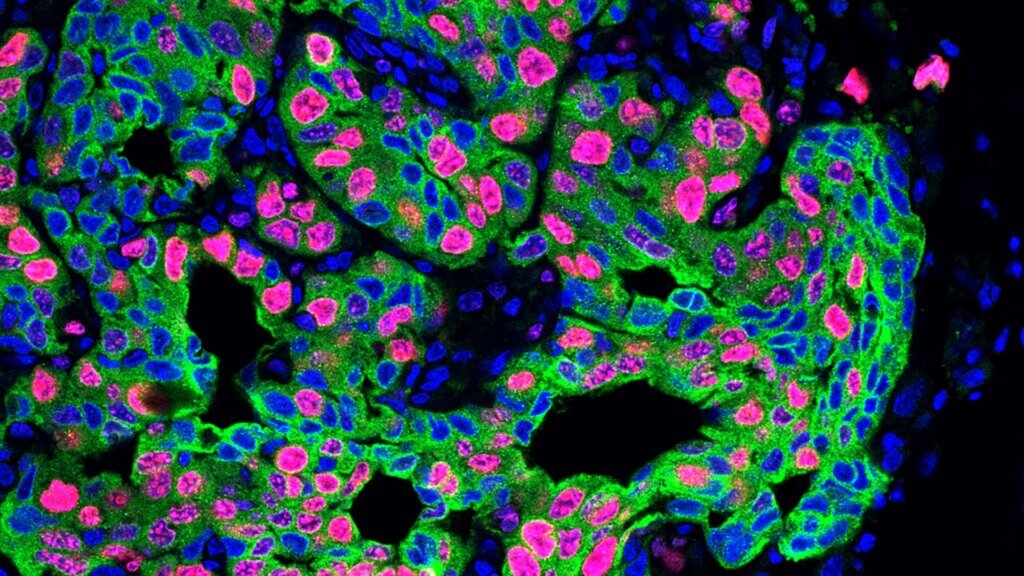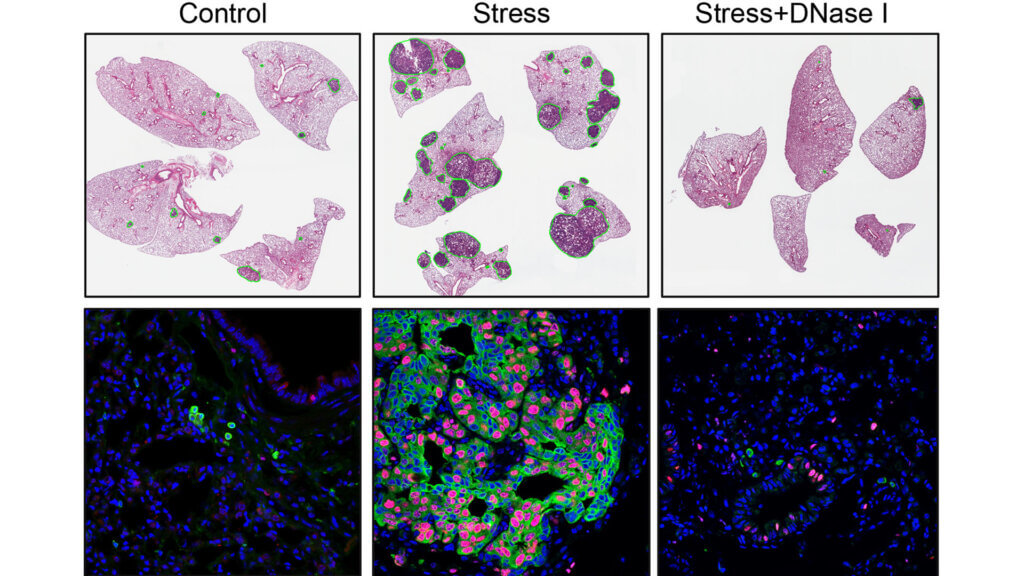In an eye-opening study, scientists have unveiled a crucial link between chronic stress and an increased risk of cancer metastasis, shedding light on why patients under severe stress often face poorer survival rates. The groundbreaking research, conducted on mice, reveals that chronic stress not only paves the way for cancer to spread, especially to the lungs, but also significantly alters the body’s internal environment to favor this deadly progression.
For many cancer patients, the journey is fraught with anxiety and fear, not just about their prognosis but also about the grueling treatments ahead. This isn’t just a mental burden; it’s a physiological one that sets off a domino effect within the body, deeply impacting everything from memory and cognition to the health of the heart, gut, and immune system.
“Stress is something we cannot really avoid in cancer patients,” says Xue-Yan He, a former postdoc at Cold Spring Harbor, in a statement. “You can imagine if you are diagnosed, you cannot stop thinking about the disease or insurance or family. So it is very important to understand how stress works on us.”
At the heart of this stress response is the release of glucocorticoids, a type of stress hormone that, while crucial for managing stress, plays a pivotal role in making the body a more hospitable place for cancer to spread.

The study by researchers at Cold Spring Harbor Laboratory illustrates how chronic stress induces a notable shift in the body’s circadian rhythm, particularly affecting neutrophils, a type of white blood cell. These stressed neutrophils start forming something called neutrophil extracellular traps (NETs), which are essentially sticky webs of DNA that can trap pathogens. However, in the case of cancer, these NETs do not serve their usual protective role. Instead, they create a welcoming environment for cancer cells to settle and grow in new parts of the body, like the lungs.
To study this phenomenon, the researchers mimicked chronic stress in mice with cancer. Following the removal of tumors, the mice were subjected to stress, leading to a startling observation by He: a significant increase in metastatic lesions, marking up to a fourfold surge in cancer spread. This was attributed to the action of stress hormones, glucocorticoids, on neutrophils, prompting them to form NETs.
What’s particularly striking is that this process is heavily influenced by the body’s stress hormones, which act through a specific receptor on neutrophils. When researchers interfered with this pathway—either by eliminating neutrophils, blocking the receptors, or dissolving the NETs with a special enzyme—the stress-induced increase in metastasis was completely stopped.
“The stressed mice no longer developed more metastasis,” He says. This indicates a direct link between stress, neutrophils, and the spread of cancer.

This research, published in the journal Cancer Cell, opens up new avenues for potential treatments aimed at preventing cancer from spreading in patients experiencing chronic stress. By targeting the formation of NETs or blocking the receptors for stress hormones on neutrophils, we might be able to protect patients from the insidious effects of stress on cancer progression.
The implications of this study are profound. It not only underscores the importance of managing stress as part of cancer treatment but also points to new biomarkers and therapeutic targets that could revolutionize how we prevent cancer from spreading. As we continue to unravel the complex relationship between our psychological state and physical health, it becomes clear that tackling stress is not just about improving quality of life—it could very well be a matter of life and death.













This is nothing new. I’ve been writing about this in my stress books for the last 40 years.
looks good to me.
Stress causes cancer to run wild…. DUH…! This is not a new finding, this is a well known fact that has been common knowledge for the last 50+ years….
I mean like, Gee Wiz, dude….
How much money did it cost to maintain this Doctors Study Stress operation … & who in theHeLL is funding this farce…? For crying out loud, this collusion now is well known scam, secure federal and state funding for a study that everyone all ready knows, just so happens to be common knowledge for last 50, 2 60 years. Pitiful reporting and that’s a fact too…..
Oncologists have sugary snacks and drinks for their patients after chemo and radiation treatments. They also make 65% of their revenue from chemo.
Cancer LOVES sugar and takes it up 200 times faster than normal cells.
It isn’t stress, it’s diet.
In 1979 the Marine Draftsman Union at the sub factory in Groton CT went on strike. The salaried/non-union supervisors were ordered to call each of their striking employees and tell them if they did not come back to work they would be fired. Many of these supervisors had worked with those employees for years or decades, many had risen from the ranks. One supervisor I really liked was dead in 3 weeks, cancer raced through his body. Another had a heart attack and a stroke but lived… I learned long ago that stress kills.